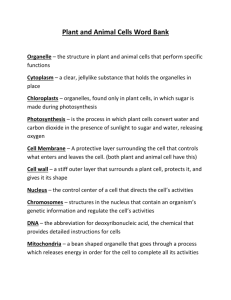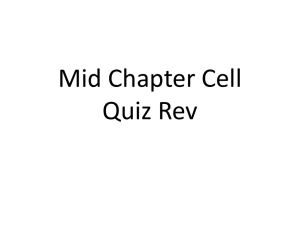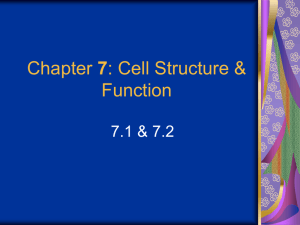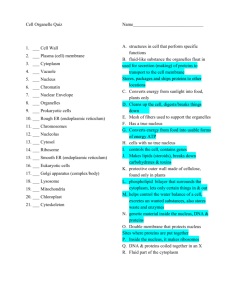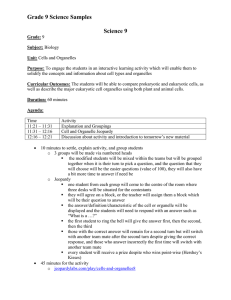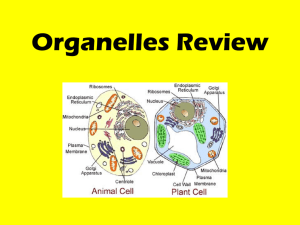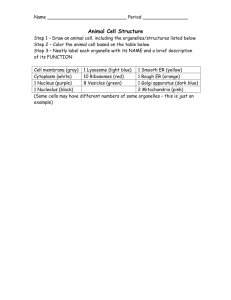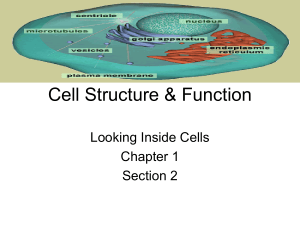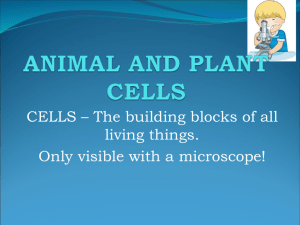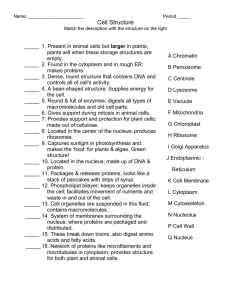Cells
advertisement
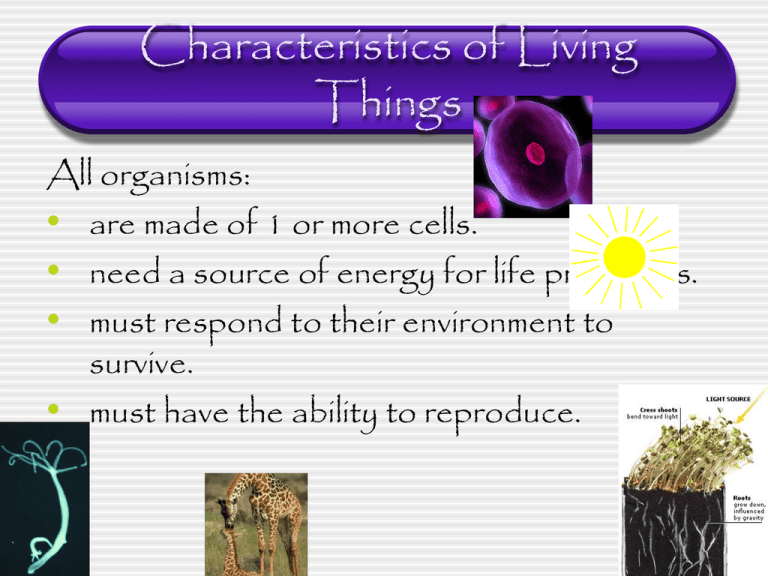
Characteristics of Living Things All organisms: • are made of 1 or more cells. • need a source of energy for life processes. • must respond to their environment to survive. • must have the ability to reproduce. Cell Theory Major Principles 1. All organisms are made of cells. 2. All existing cells are produced by other living cells. 3. The cell is the most basic unit of life. Cell Types • Prokaryotes No membrane-bound nucleus or organelles • Eukaryotes Made up of one or more cells Nucleus & membrane-bound organelles Prokaryote Eukaryote Parts of the Cell • All cell types have: Plasma Membrane - cells outer boundary Cytoplasm - fluid inside the cell Control center - nucleus in eukaryotic cells, DNA in cytoplasm in prokaryotic cells • Only eukaryotic cells have organelles Plasma Membrane Controls what goes in and out of the cell Cytoplasm •Cell’s liquid interior •Contains the cytoskeleton •Contains organelles Nucleus In Eukaryotic Cells Controls all cell’s activities Contains DNA Nuclear Envelope Separates DNA from cytoplasm in the nucleus Nucleolus •In the nucleus •Made of proteins & nucleic acids •Ribosome synthesis Ribosome •Contains RNA •Helps build proteins •Made in the nucleolus Mitochondrion •Generates ATP (energy) •Controls cell cycle & cell growth •Inherited from your mother Endoplasmic Reticulum (ER) Production & movement of proteins throughout the cell Golgi Apparatus Processes & packages lipids & proteins Lysosome Digests food & worn-out cell parts for the cell Cilia & Flagella Cilia •Single-celled organisms •Helps move the cell around •Cilia – many & short Flagella •Flagella – few & long Cell Wall •Outside of the cell membrane •Provides support & protection •Plant cells Central Vacuole •Storage unit for cells •Contains wastes, food, or water Chloroplast Conducts photosynthesis
